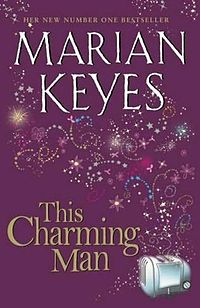When I went home over Thanksgiving, I checked out Caitlin Kelly's Malled from the library, even though it wasn't on my revised 2011 reading list. For some reason I'd really wanted to read this book - it was about a freelance journalist who ends up working at a mall when the global financial meltdown slows her business to a trickle, something I can relate to - but I didn't want to buy the e-book, mostly because the reviews on Amazon weren't kind. This might actually be the first time I've ever seen a book have more one-star reviews than five-star reviews. I probably should have listened.
Malled had so much potential (and apparently a lot of hype to go with it) but the result wasn't great – mostly because the author made a massive mistake in focusing the book on herself when it was supposed to be about the plight of the American retail worker or even the experience of working in a store. The more I think about it, the more I realize this book is a complete mess. It’s repetitive, contradictory, filled with ego and doesn’t seem to know what kind of book it is.
The author is clearly looking for validation, but interestingly, she only sees one level of it. In the book, Kelly talks about wanting to work in the mall, hoping that after her freelancing disappointments, she'll find people who appreciate her skills. This is an obviously stated purpose. (Though it doesn't happen, which seems to be her main gripe about retail.) But as you read, you also see that Kelly herself is looking for validation by writing this book, and she doesn't seem to be aware of it. She appears to be a woman with a massive chip on her shoulder, who thinks the world is against her - she often talks about her rich upbringing, the famous people she's interviewed (Queen Elizabeth, omg!), and her journalistic skills...but then there are also these moments when she tells about getting fired from her last job (for not being productive), that her former coworkers weren't interested in socializing with her, that people often find her cold and standoffish, or that she feels unappreciated (and then slighted) when she should be totally appreciated. It was hard to reconcile and as a result, I thought she was hard to like as a narrator. In this respect, in the disconnect between what someone says and what they seem to do, I thought this book resembled Marina Pasternak's The Best of Friends, the tell-all book about her longtime friendship with Martha Stewart.
Usually by this point in a review, I've already talked about the plot. But Malled really has no plot; I don't know what to say about it other than it's the tale of a 50-year-old woman outside of New York City who decides to go work at the North Face in an upscale mall. It's not one of those true-life experiential career books like Waiter Rant or Kitchen Confidential where you walk away with a good idea of what it's like to work in that profession - despite the subtitle "My Unintentional Career in Retail." I don't know anything more about the day-to-day work involved in retail after reading Malled. (And perhaps Kelly doesn't either, not really - she only worked one shift a week for a little over two years.) The book jacket (and the author's obnoxious Amazon biography, which I would bet good money she herself wrote) suggests Malled is going to be a little more hard-hitting, exposing the inner workings of the retail industry, but frankly, it's not that either. And that's because she relies on a lot of anecdotes, from maybe 30 fellow workers, to prove her "facts," but as a journalist, she should already know that anecdotes do not prove anything. With the millions of retail workers out there in America alone, you could pretty much find anyone to say anything. A lot of the anecdotes are sort of stupid, too – boiled down, it’s “retail is hard,” “the economy made professionals go into retail and they’re sad about it,” and “working for the right company can be great.” I've never worked in retail, and I think I already knew that.
I could keep going, detailing the many contradictions in this book, but I think I've trashed this book enough. It was most disappointing because it could have been and should have been better.




















 But I'm pretty sure that Moran takes an unusual -
But I'm pretty sure that Moran takes an unusual - 

